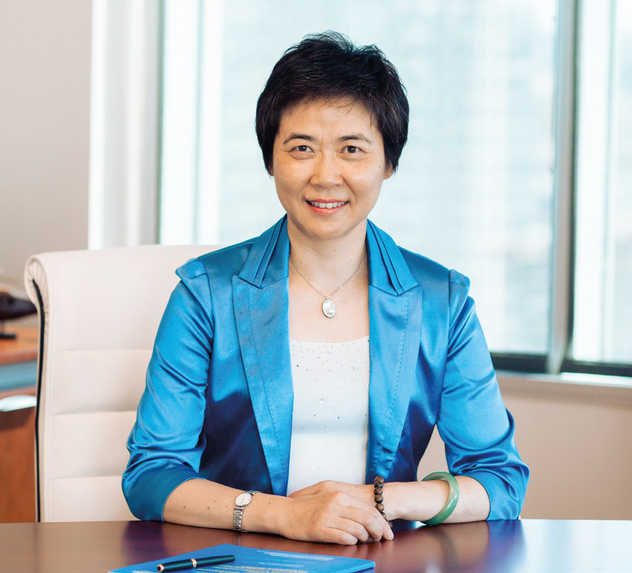Appreciating recent increases in domestic passenger and freight movements in the ICAO Asia-Pacific (APAC) region, ICAO Secretary General Fang Liu encouraged APAC States this week “to continue the proactive pursuit of public health corridor and other near-term travel bubble solutions,” and reminded the policy experts of the extensive information and resources ICAO has issued on how to prudently establish them.
 She told a special roundtable of Asia-Pacific APAC health policy and civil aviation experts today that their public health response successes, and related efforts to establish public health corridors and travel bubbles, are helping to reconnect the region and restore public confidence in air travel.
She told a special roundtable of Asia-Pacific APAC health policy and civil aviation experts today that their public health response successes, and related efforts to establish public health corridors and travel bubbles, are helping to reconnect the region and restore public confidence in air travel.
Dr. Liu also highlighted how ICAO’s data monitoring is revealing that regions with higher levels of intra-regional traffic are seeing a more rapid restoration in air services.
“Yours is one such region,” she recognized, “and it’s important that government and industry decision-makers continue to build upon this region’s public health and air transport results.”
In addition to the pandemic response and air transport successes highlighted, the ICAO Secretary General also recognized the severe socio-economic impacts of the pandemic which are still being felt by many APAC countries, and the $100 billion in lost 2020 APAC operator revenues ICAO has forecast.
“These aviation impacts have imperilled businesses large and small, and the livelihoods of hundreds of millions of people worldwide,” she said. “From a global standpoint they have been significantly more severe than any previous downturn in the international movement of people and goods, and their very dire effects on airport and airline financial viability could yet mean that we re-emerge with a far less connected world post-pandemic.”
“We must also recognize that these negative socio-economic impacts are being felt very acutely by the 14 Pacific Small Island Developing States (PSIDS) in this region,” she underscored.
 Dr. Liu updated her audience on the current revisions being undertaken to the COVID-19 response guidance issued by the ICAO Council Aviation Recovery Taskforce (CART), noting that “public health authorities should take particular note of its updated guidelines, once approved by the ICAO Council, relating to general hygiene, masks and face coverings, health screening and declarations, air passengers with reduced mobility, and the mental health and well-being of aviation workers and passengers.”
Dr. Liu updated her audience on the current revisions being undertaken to the COVID-19 response guidance issued by the ICAO Council Aviation Recovery Taskforce (CART), noting that “public health authorities should take particular note of its updated guidelines, once approved by the ICAO Council, relating to general hygiene, masks and face coverings, health screening and declarations, air passengers with reduced mobility, and the mental health and well-being of aviation workers and passengers.”
“Specific attention has also been aimed at helping countries assess testing options as a means to alleviate quarantine measures — if appropriate for their situation — and, as medical factors permit, augment the international movement of people and goods,” she emphasized.
Concluding her address, the Secretary General expressed her confidence that “by further improving cooperation, aviation can build back better in the post-pandemic era and achieve a more sustainable future for international air connectivity.”
The Aviation-Public Health Experts’ Roundtable, held under the auspices of the ICAO Asia Pacific Regional Office, brought together aviation and public health thought-leaders from the Region to exchange ideas, promote understanding and build consensus to help pave the way for safe resumption of international air travel.
Senior Officials from both Public Health and Aviation sectors from Australia, China, India, Japan, Malaysia, Republic of Korea, Singapore, Sri Lanka and Thailand participated in the discussions.

